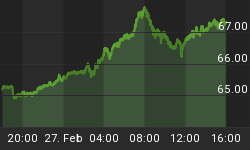With a decision over the renewal of U.S. sanctions looming large in early May, the Iranian central bank has moved to ban all domestic banks from trading in cryptocurrencies, unify the fiat currency exchange rate and cut exchange houses out of the mix.
While the crypto move is purportedly designed to avoid entanglement in money-laundering and terrorism-financing. More significantly, Iran is bracing for a currency crisis and is trying to avoid any further degradation of the rial, which has hit unprecedented lows.

(Click to enlarge)
Not only has it banned cryptocurrency dealings, but it’s also unified its official and open market exchange rates and banned all money-changing transactions outside of banks in order to prop up the rial.
Since September, the rial has lost almost half of its value on the free market, dropping from 36,000 to the dollar to 60,000 to the dollar last week.
The ban was announced on IRNA, Iran’s official news agency, on April 22. The central bank ban follows a similar ban announced in December by Iran’s anti-money laundering body, saying “banks and credit institutions and currency exchanges should avoid any sale or purchase of these currencies or taking any action to promote them”.
In the meantime, the Iranian rial is having a tough time, and those who have grown accustomed to buying foreign currency from exchange offices are increasingly disappointed.
According to Radio Free Europe/Radio Liberty (RFE/RL), many exchanges offices have closed their doors, with signs saying they’re out of U.S. dollars, sparking a nationwide “dollar-buying panic”. Related: Bitcoin’s Breakout Is Not As Bullish As it Seems
The rial’s value is plunging and the panic is intensifying on fears that May 12 will see a renewal of U.S. sanctions on Iran.
The government’s official exchange rate has now been set at 42,000 rials against the dollar, with a cap on the amount of foreign currency that citizens can hold outside banks.
Police are patrolling high-traffic exchange areas to monitor potential under-the-table trades, according to RFE/RL, while exchanges are hoarding dollars and black-market rates are soaring as traders take the streets to defy the government.
Johns Hopkins University economist Steve Hanke described the situation for RFE/RL as “a perfect currency storm”.
Iranian President Hassan Rouhani has long discussed the potential for a unified exchange rate; however, such a move had always been conditioned on the resumption of international banking ties, which are still absent. The ‘perfect storm’ is now being bolstered by speculators or those trying to protect their assets.
According to Seyyed Ali, former CBI deputy for foreign exchange affairs, as cited by Al-Monitor, Iran’s regulatory had “lost the true target market”--travelers, students and others in need of hard currency—before the rate unification because the market was flooded with speculators as unregulated exchange houses had become more prevalent.
Now it’s a game of preventing massive capital flight, which is hard to do when the panic button has been pushed.
By Michael Kern for Safehaven.com
More Top Reads From Safehaven.com:
















